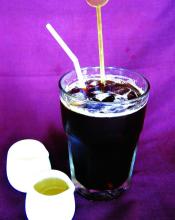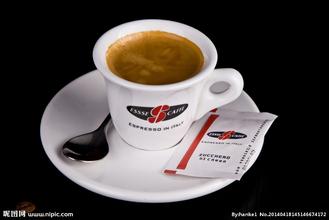Introduction to the flavor and taste characteristics of El Salvador coffee manor with mild sour, bitter and sweet taste
Sanchez Salem is president of El Salvador. He was born on June 18, 1944 in Xattepec, El Salvador. After graduating from Alberto normal School, he taught in a primary school in his hometown for 10 years. He participated in the creation of the first left-wing armed force in El Salvador, the Farabondo Marti people's Liberation Forces, in 1970 and became general secretary of the organization in April 1983. Since then, the organization has joined forces with other left-wing political and military groups in Saudi Arabia to form the Marty Front. In 1992, he participated in the signing of the Peace Agreement that marked the end of the civil war in Saudi Arabia. He served as General Coordinator of the Marty Front twice from 1994 to 1997 and from 2001 to 2004. He was elected for three consecutive terms from 2000 to 2009, and served as the leader of the parliamentary caucus of the Marty Front from 2006 to 2008. Served as Vice President and Minister of Education from June 2009 to June 2014. In March 2014, he was elected President as a candidate of the Marty Front and took office on 1 June for a five-year term. [6]
Economy,
General situation
El Salvador's economy is dominated by agriculture and its industrial base is weak. Promote the economy since 1992
San Salvador
San Salvador
With liberalization and reform, inflation has been curbed and the economy has developed rapidly. From 1990 to 1997, the economy grew at an average annual rate of 5.3%. Since 2001, the policy of economic dollarization has been implemented, allowing the legal circulation of US dollars, the fixed exchange rate between the local currency and the US dollar, and overall macroeconomic stability. In 2010, imports were US $8.189 billion and external debt was US $11.07 billion. In 2011, GDP was US $22.6 billion, an increase of 1.3% over 2010, with a per capita GDP of US $3722, an unemployment rate of 7% and an inflation rate of 5.1%. [7-8]
Agriculture
Agriculture is the pillar of El Salvador's national economy. In 2003, 43.2 per cent of the country's population was engaged in agricultural production, with an area of 2.104 million hectares of arable land and 80 per cent of agricultural products for export. In 1997, the agricultural output value was about 12.678 billion kronor, accounting for 13 per cent of the GDP of that year, compared with a growth rate of 0.2 per cent in 1998 and 6.9 per cent in 1999. In 2011, the agricultural labor force accounted for 21% of the country's total labor force, and the agricultural gross domestic product (GDP) was about US $2.42 billion, accounting for 10.5% of the GDP. By 2015, the country's sugar industry contributed 2.5 per cent of its GDP output and $200m in export earnings each year. [8-9]
Industry
Salvadoran coffee ranks side by side with Mexico and Guatemala as the producers of Asa and Merdo, and is fighting for the top one or two places in China and the United States with other countries. The highlands of origin are large coffee beans of all sizes, which are fragrant and mild in taste. Like Guatemala and Costa Rica, coffee in El Salvador is graded according to altitude. The higher the altitude, the better the coffee. It is divided into three grades according to elevation: SHB (strictly high grown) = highlands, HEC (high grown central) = mid-highlands, and CS (central standard) = lowlands. The best brand is Pipil, which is what the Aztec-Mayan (Aztec-Mayan) called coffee, which has been recognized by the American Organic Certification Society (Organic Certified lnstitut eof America).
Unique, mild Salvadoran coffee
El Salvador is one of the small countries in Central America with a dense population. The flavor of its coffee is characterized by excellent balance.
"Salvadoran coffee beans | w.kaf.name Salvadoran coffee refers to the coffee bean text teacher from El Salvador, a small country in South America."
Today, this coffee accounts for 40% of the country's exports. 35% of the extra hard beans of the best coffee are exported to Germany from January to March.
In the early 1990s, guerrilla warfare greatly damaged the country's national economy, reducing coffee production from 3.5 million bags in the early 1970s to 2.5 million bags in 1990-1991. The eastern part of the country was most affected by guerrilla warfare, and many farmers and workers were forced to leave the manor. The shortage of funds has led to a sharp drop in coffee production, from 1200 kg per hectare in the past to less than 900kg per hectare today. In addition, the government imposed an additional 15% tariff on exported coffee in 1986, that is, an additional 15% in addition to the existing 30% tax. Taxes, together with unfavorable exchange rates, have greatly reduced the export of coffee and the quality of coffee.
The government finally realized the great role of coffee in the national economy, such as solving employment, earning foreign exchange and developing agriculture, so it privatized some coffee export industries in 1990, hoping to increase the income rate of coffee in the export market.

Important Notice :
前街咖啡 FrontStreet Coffee has moved to new addredd:
FrontStreet Coffee Address: 315,Donghua East Road,GuangZhou
Tel:020 38364473
- Prev

Nicaraguan Coffee Variety Manor Flavor introduction to Los Congo Manor
Tianyi Manor, located in Dipilto, grows coffee on 10 plots above 1350 meters above sea level. When the current landowner Misael Sauceda Olivera inherited from his father, there were only two plots of land for planting and development, and then he bought the land from his neighbors, which has grown to its present scale. Thanks to the efforts of the landowner Misael Sauceda Olivera, Tianyi Manor has been planted many times.
- Next

Introduction to the flavor and taste characteristics of Nicaraguan Coffee Manor Tianyi Manor
Managua, the capital of Nicaragua, is located in the west of the border, on the south bank of Lake Managua, hence its name. The northwest is 140 kilometers away from the Collinto seaport on the Pacific coast. 55 meters above sea level. It is a Spanish city with beautiful scenery. Because it is located to the east of the Pacific volcanic active seismic belt, there have been four strong earthquakes in the city in the past 100 years, including one in December 1972.
Related
- Does Rose Summer choose Blue, Green or Red? Detailed explanation of Rose Summer Coffee plots and Classification in Panamanian Jade Manor
- What is the difference between the origin, producing area, processing plant, cooperative and manor of coffee beans?
- How fine does the espresso powder fit? how to grind the espresso?
- Sca coffee roasting degree color card coffee roasting degree 8 roasting color values what do you mean?
- The practice of lattes: how to make lattes at home
- Introduction to Indonesian Fine Coffee beans-- Java Coffee producing area of Indonesian Arabica Coffee
- How much will the flavor of light and medium roasted rose summer be expressed? What baking level is rose summer suitable for?
- Introduction to the characteristics of washing, sun-drying or wet-planing coffee commonly used in Mantenin, Indonesia
- Price characteristics of Arabica Coffee Bean Starbucks introduction to Manning Coffee Bean Taste producing area Variety Manor
- What is the authentic Yega flavor? What are the flavor characteristics of the really excellent Yejasuffi coffee beans?

